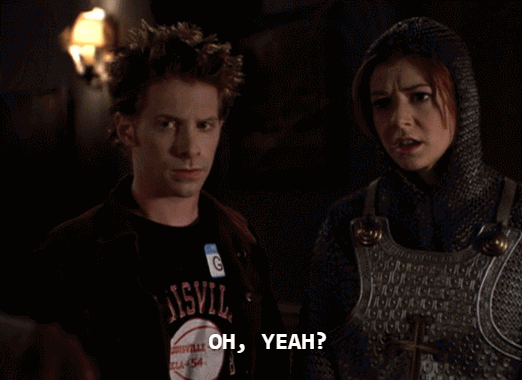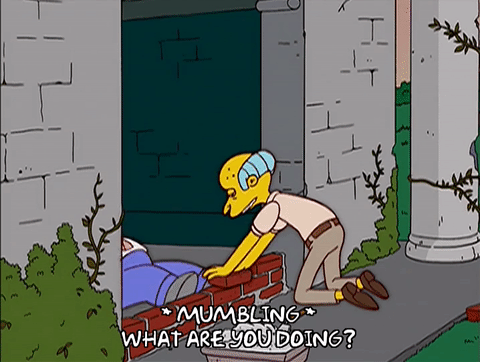Just recently wrote an essay about this topic in psychology and thought it would be a good idea to share the information with you guys who are currently in relationships or gotten out of relationships wondering how and where it all went wrong, this can also be related to friends, family and house mates.

Problems in your relationship or breakups are often down to 4 reasons, called The Four Horsemen of the Apocalypse. These are: criticism, contempt, defensiveness, and stonewalling, which I will get into details about and how you can avoid going down this route which eventually leads to a breakup or divorce.
Criticism
Is the first horseman, happens very often in conflict and arguments. This is an easy issue to become guilty of, especially when you're feeling irritated by your partner. You often say things like "You're so lazy.", "You're so irresponsible.", your words turn into an attack on your partner, and instead of telling them what their behaviour makes you feel or what they could do to improve on that, you leave them hanging and feeling at times hurt and rejected. And the more this happens the more it builds up and eventually one of you start feeling insecure by the constant attacks on their personality, making them feel like they're not good enough.

Example
Criticism: "You're so lazy and irresponsible all the damn time, all you ever think about is yourself, always making me do everything for you. So fucking selfish."
What to say instead: "Im so stressed out doing so much by myself around the house, could you help out and take out the trash? Clean the dishes?"
This makes your partner know what their current behaviour is making you feel, but it doesn't leave them hopeless and feeling attacked. Instead they can respond with a "Sorry, sure I'll do that".
Contempt
Disrespecting your partner - rolling your eyes at them, mocking them, putting them down, sneering and being rude. This isn't the mutual joking around and teasing your partner a little which makes both of you laugh, rather its just being downright disrespectful.
Contempt feeds the negativity in the relationship, and it can become toxic. Generally the person putting their partner down is trying to act superior, or act as if their problems are bigger than anyone else's.

Example
Contempt: *Rolls eyes* "You're tired?! Yeah Im sure you're SOO tired, I've been working around the clock and you've just been doing what? Barely anything. Geez. Cry me a fucking river. Just get your shit together and do it."
What you should do instead is really think about what you're saying, is there any other way you could say that you're also tired if not more without trying to put down your partner and making them feel like their problems are pathetic? A better example would be: "I know you're tired, so am I, this week has just been wearing me out like crazy, could you just do it for me this once? I would really appreciate it."
Of course this issue is easier said then done, especially when you're feeling stressed and irritated, harsh words just come firing out of your mouth without you thinking of the consequences. When this happens take a step back and think about what you've just said. Be mature, apologize and tell them you didn't mean it and tell them you've just been feeling so stressed you can't think properly.
Defensiveness
This is the easiest behaviour to fall into when in conflict. When you're feeling attacked you feel like you need to justify yourself and make some kind of excuse or attack your partner back. In this situation contempt and criticism commonly plays a part only to make the conflict worse.
The problem with defensiveness is that it can become an easy habit, eventually you're no longer listening to what your partner has to say. Any complaint they have you just bounce it off without taking it into consideration and make an excuse for your behaviour, often blaming your partner or something else, not taking any responsibility of your own actions or role in the conflict.

Example
Defensive response: "Yeah well why do you think Im acting like this? You've been so selfish lately, you're so dense you don't even seem to know what the problem is. Taking me for granted that is what you are doing, thought I'd let you know how it feels."
Better response: "You're right, I've been acting cold and ignoring you because that is what you were doing to me, I thought you'd know how I felt if I did the same back to you. I know I should just have told you how I felt about the situation instead of playing mind games. Can we just talk it out? Whats going on?"
In the better response you're acknowledging your own mistake and immature behaviour rather than making up excuses to make it seem like you're the only victim in this situation, which makes you come across as hypocritical. You're also giving an option to talk out the problem and get to the bottom of the issue, after all communication is key.
Stonewalling
Is the last horseman - building a wall between you and the problem, evading the real issues. This is actually one of the most damaging horsemen of them all. Its a more common problem for men than women when they become overwhelmed, instead of getting to the bottom of an issue or talk about a problem they rather avoid the conflict all together. Issues start to bottle up and eventually that wall is going to crack and crumble when they can't take it anymore, often leaving their partner confused about where it all went wrong and why they didn't say anything.
This often happens after the first three horsemen has become a common thing in your relationship, eventually one partner tunes out completely. 
Trust me acknowledging all these issues is not an easy task, Im still working on it myself but my pride and stubbornness sometimes makes it a struggle because its so much easier to be immature about a situation and come across as superior which feels great than to be mature about it and admit your own faults.
If you take these issues into consideration - both you and your partner, your relationship is going to strengthen and going to become far less negative.
Once you start changing these things from one side, it often bounces off to your partner as well, positivity eventually feeds positivity, while negativity feeds more negativity. It might be difficult at first if you're currently in a more negative place, but fighting off that negativity will eventually lead to better outcomes in the future. If that doesn't change things it might be time to move on.
I hope you liked my MyTake, any questions just ask. I'll be writing another MyTake about "insecurities and how to deal with them" soon : ) So stay tuned ✌🏽
 Holidays
Holidays  Girl's Behavior
Girl's Behavior  Guy's Behavior
Guy's Behavior  Flirting
Flirting  Dating
Dating  Relationships
Relationships  Fashion & Beauty
Fashion & Beauty  Health & Fitness
Health & Fitness  Marriage & Weddings
Marriage & Weddings  Shopping & Gifts
Shopping & Gifts  Technology & Internet
Technology & Internet  Break Up & Divorce
Break Up & Divorce  Education & Career
Education & Career  Entertainment & Arts
Entertainment & Arts  Family & Friends
Family & Friends  Food & Beverage
Food & Beverage  Hobbies & Leisure
Hobbies & Leisure  Other
Other  Religion & Spirituality
Religion & Spirituality  Society & Politics
Society & Politics  Sports
Sports  Travel
Travel  Trending & News
Trending & News
Most Helpful Opinions